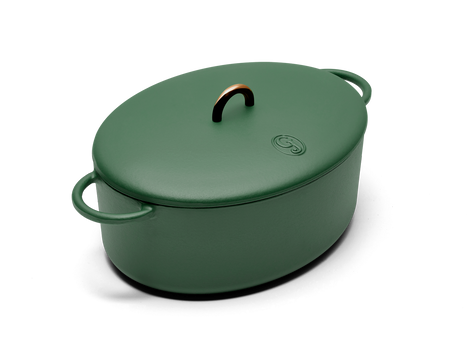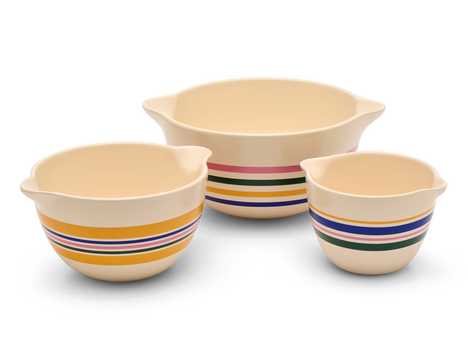Great Ones is a celebration of humans we admire — and an exploration of why they cook, not just how. Sana Javeri Kadri is the founder of Diaspora Co., a spice company that specializes in single-origin turmeric. She’s a native of Mumbai who’s living in Oakland, where we captured her at home cooking her go-to “gay pasta.”
When I moved to America for college, I used food as a lens to understand this new country. I worked on an organic farm for four years. I studied visual arts and food studies, so I was already interested in consumption and sustainability. When I graduated college in 2016, I got a job as the marketing assistant at Bi-Rite in San Francisco — the center of the farm-to-table movement in the Bay Area. Very quickly, during my deep dive into the Bay Area sustainable food world, I realized I wasn’t seeing my story or stories of people who looked like me — immigrants, people of color, queer folks, women — represented.

I was also very homesick; I hadn’t been back to India in a year and a half. My whole family is in Mumbai. I was missing it and feeling really disconnected. I started asking people in Bi-Rite, “What comes from India here?” I was finding the idea of “made in India” to be quite outdated, and I realized anything that was made in India, there was little care given to the sourcing of it. It somehow didn’t matter because it was in the quote-unquote ethnic food aisle. This was true across the Bay.

India agriculture is really a shitstorm; the country has the highest rate of fertilizer overuse in the world. The idea of spices being exotic and perfect is outdated and colonial. I quit my job in February of 2017, and I moved back to Mumbai for the first time in nine years with a one-way ticket. I had an idea in the back of my head that maybe I would photograph a story about spices and turmeric. I had seen the explosion of turmeric in the U.S., but I had a hunch that it wasn’t being sourced well. I had set myself a 30,000-rupee budget, which is about 400 dollars. I ended up visiting nineteen farms all over the country and blew through that budget very quickly; it became an obsession.
I had seen the explosion of turmeric in the U.S., but I had a hunch that it wasn’t being sourced well.

My college thesis focused on the effects of British colonialism on Indian agriculture, and then I saw the real applications of this. The spice trade in 2017 looked roughly the same as it did in 1860, and no one bothered to change it because it profited too many people in between. I reached out to the Indian Institute of Spice Research, calling every day with no response. I finally flew there and showed up at their office. They said, “Sana, we’ve been waiting for you!” They gave me seeds that I could give to farmers.

In short, it just snowballed from there. Diaspora is growing so quickly that I haven’t really been able to take stock of how much we’ve accomplished. I was just looking at my diary from when I went to visit one of our farmers for the first time, and I detailed a five-year plan to make the best turmeric in America. It’s been a year, and Diaspora is already known as that. My farmer is doubling his capacity to keep up with our demand. We’re adding four new spices this year and building out a full-fledged spice business. As a woman from India, I want to give cultural context to turmeric. If our company can do that, that’s fantastic. It’s odd that it’s so trendy, but I’m not going to police how people consume it. If you want to have turmeric with a side of crystal, that’s fine by me.
I detailed a five-year plan to make the best turmeric in America.
For the first year of running the business, I pretty much just ate takeout pad Thai. My relationship to cooking was just feed yourself. But in the past two months there’s been a shift; my work systems have gotten into place. If I’m not eating properly I’m not doing my best work. My girlfriend, Rosie, and I will stop work at 6:30 p.m. every day, no matter what—almost every day! If need be, I go back to work after we finish cooking. It’s been a game changer for our relationship, too. I’ve also worked in restaurants ever since I’ve moved here, so for a long time cooking was work. I’ve reconfigured it to not being a chore, but to it being something I enjoy. I also didn’t have any money for the past year. As of two months ago, we started having income to go to Whole Foods sometimes and buy saffron for our pasta. Having income from this business to actually make nice dinners has been a game changer and a privilege.
Having income from this business to actually make nice dinners has been a game changer and a privilege.

I grew up with a close extended family in India. The women were really expected to be beautiful and thin, and my grandmother had very strict ideas of how women should eat and what was proper to eat. Carbs were not one of those things. From a young age, I had been told that if you want to stay skinny you should never eat more than two rotis ever, no matter what. That kind of restrictive eating bled into my adulthood. It was only when I came out and starting dating Rosie — she is a professional athlete and depends on carbs — that I realized that carbs are delicious and not the end of the world.

We make what we call “gay pasta” once a week; it makes awesome leftovers. It’s a base of pancetta or bacon, ground beef, and lots of vegetables — zucchini, eggplant, tomatoes, mushrooms, kale (quite literally every vegetable I have in my fridge). I do the whole pasta on the stovetop; I start with garlic, shallots, onions, and usually bacon, and then I let that reduce for a while in The Dutchess, which is wonderful. I add ground beef to the pot while cooking each vegetable separately on the side, so they get cooked properly, and one by one I pile them into my big Dutchess with ground beef and bacon. And finally I do one jar of tomatoes and let them reduce down so they’re even sweeter. Plus, anchovies because Alison Roman taught me well. And a big glug of red wine — it’s always a toss-up of how much wine I want to drink versus use for cooking.


I let that cook for 45 minutes and toss the base with gluten-free pasta, which I boil in Saucy. Sometimes, if I’m feeling naughty, we’ll add Brooklyn Delhi’s curry ketchup. Everything but the kitchen sink!

























